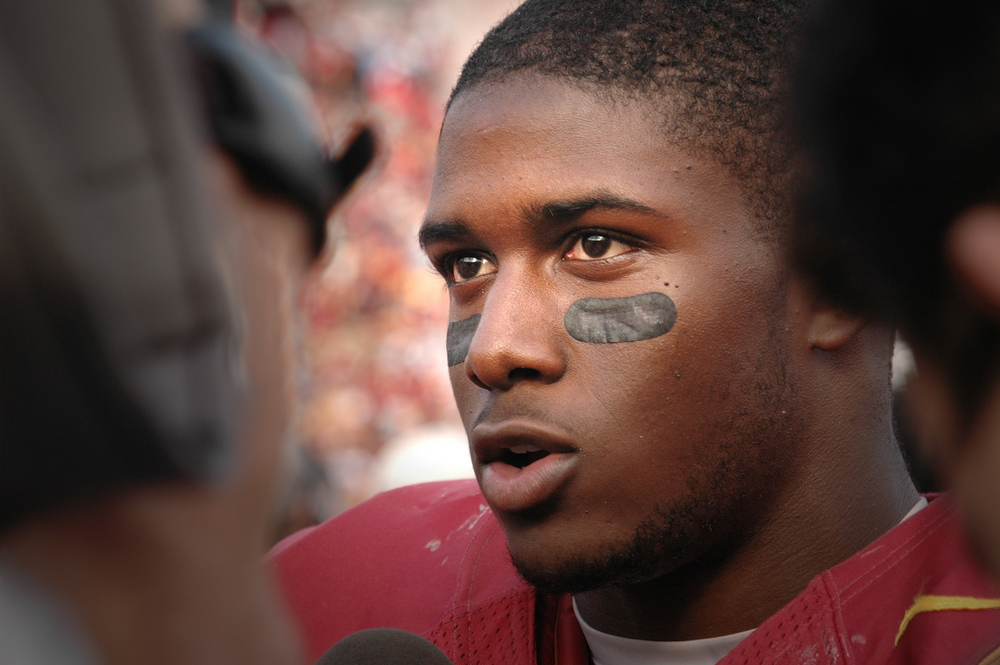The women’s final of this year’s U.S. Open ended in arguably the most controversial fashion in the tournament’s 50-year history. An old and new champion stood at center court in tears as tournament executives and TV broadcasters awkwardly tried to conduct a trophy ceremony over a chorus of boos. A moment that’s usually a heartwarming cap to the Grand Slam season was marred with sadness, confusion, disappointment and anger.
And tennis can blame its repeated foolish treatment of its greatest player for why it got to this point.
Japanese upstart Naomi Osaka fulfilled her childhood dream by defeating her idol Serena Williams to capture her first Grand Slam. It’s unfortunate the controversy surrounding Williams is overshadowing Osaka. The 20-year-old was the better player on Saturday—outplaying the three-time U.S. Open champion in every facet before all hell broke loose between Williams and umpire Carlos Ramos. Osaka is a worthy champion and a force to be reckoned with for years to come.
But the story of the match is still Williams. Despite her early struggles, the 23-time Grand Slam winner was showing signs of life in the second set. If Williams successfully mounted a comeback, it wouldn’t have been the first time she dug herself out of a deep hole. It’s also why Williams’ referring to Ramos as a “thief,” while seemingly over the top, feels appropriate.
Williams was docked a point for two rules violations. Ramos first penalized Williams for receiving coaching, a decision akin to a traffic cop giving out a ticket for exceeding the speed limit by five miles per hour. The second violation came when Williams smashed her racket—a clear penalty. But Ramos delivered the crushing blow by giving Williams a third violation for calling him a “thief” during a contentious exchange. The penalty resulted in Williams dropping a game—stymieing any momentum gathered and all but ending her comeback bid.
Ramos robbed Williams of a chance at an improbable victory, Osaka from an opportunity to see if her mettle could have withstood a signature run from her hero and the fans from witnessing a potentially epic clash between tennis’ present/past and its future on one of the biggest stages.
Many fans and tennis players blasted Ramos’ umpiring. In a Twitter post, former U.S. star Andy Roddick said it was “worst refereeing” he’s ever seen. Roddick and former American tennis player James Blake both agreed with Williams’ assessment that male players have said worse things to umpires and not been penalized. Icon Billie Jean King said Ramos displayed an “abuse of power” in a Washington Post editorial.
“The rules are what they are, but the umpire has discretion, and Ramos chose to give Williams very little latitude in a match where the stakes were highest,” wrote King.
But the bigger issue is this uneven treatment for Williams is becoming increasingly common. She is a pioneer, legend and arguably the greatest female player ever. Yet, the sport treats Williams like she’s an unranked rookie. What happened on on Saturday was equivalent to LeBron James being ejected from game seven of the NBA Finals because he said a few unkind words to an official. Where other sports leagues go out of their way to protect its star players, tennis routinely targets Williams for nonsense. Whether it’s in-match coaching, disproportionate drug testing or a freaking catsuit, the sport consistently stacks the deck against Williams.
She obviously lost her nerve in her match against Osaka. A great champion needs to keep their composure in even the most hostile of circumstances. She failed in that regard. But was Williams’ meltdown on Saturday the result of a great player reaching a boiling point? Williams admitted that previous ugly incidents at Flushing-Meadows creeped into her mind during the ordeal.
“I think it’s just instantly, just like, ‘Oh, gosh, I don’t want to go back to 2004,’” Williams said in the post-match press conference. “Forget 2009, you know. It started way back then. So it’s always something.”
In both years, and in 2011, Williams was ousted from the tournament after ticky tack rulings. Also like Saturday, Williams was fined in 2009 and 2011 for berating the umpire.
No one thinks Williams should be above the law. But the lack of respect she gets from officials and umpires needs to end. Just like when James, Kevin Durant, and Stephen Curry benefit from “superstar calls” in basketball; or when baseball umpires give Clayton Kershaw and Madison Bumgarner a few more inches on the strike zone, it’s time Williams is treated like the trailblazer she is.
Originally posted 2018-09-11 10:04:20.








